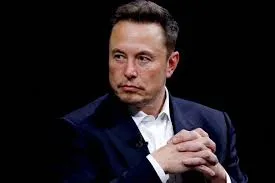Elon Musk, the billionaire CEO of Tesla, SpaceX, and owner of X, a social media company, made headlines on Monday by announcing his intention to ban Apple devices from his companies if the iPhone maker integrates OpenAI at the operating system level.
In a post on X, Musk described such integration as an “unacceptable security violation” and stated that visitors to his companies would be required to check their Apple devices at the door, where they would be stored in a Faraday cage to prevent any potential security breaches.
Musk’s remarks came in response to Apple’s announcement of AI features across its apps and platforms, along with a partnership with OpenAI to bring ChatGPT technology to its devices. Apple emphasized its commitment to privacy and stated that it would utilize a combination of on-device processing and cloud computing to power AI features while ensuring user privacy.
Musk criticized Apple’s decision, expressing skepticism about the company’s ability to guarantee security and privacy with OpenAI integration. He questioned why Apple would rely on OpenAI instead of developing its own AI capabilities.
However, industry experts like Ben Bajarin, CEO of Creative Strategies, believe that Musk’s stance is unlikely to be followed by others. Bajarin noted that Apple aims to educate users about the security of private cloud computing and the anonymization of user data when it leaves the device.
Musk’s opposition to OpenAI is not new. He previously sued the organization, which he co-founded in 2015, and its CEO Sam Altman, accusing them of deviating from the startup’s original mission of developing AI for the benefit of humanity.
In response to OpenAI’s direction, Musk launched his own startup, xAI, to challenge OpenAI and develop alternative AI solutions. xAI recently raised $6 billion in series B funding, valuing the company at $24 billion, as it aims to compete with ChatGPT and other AI technologies.



